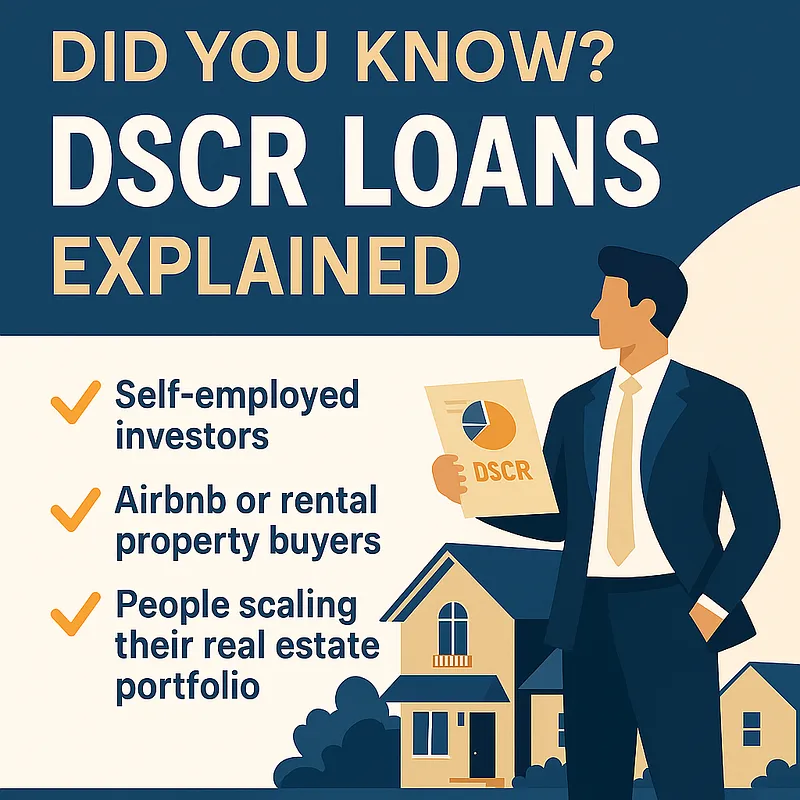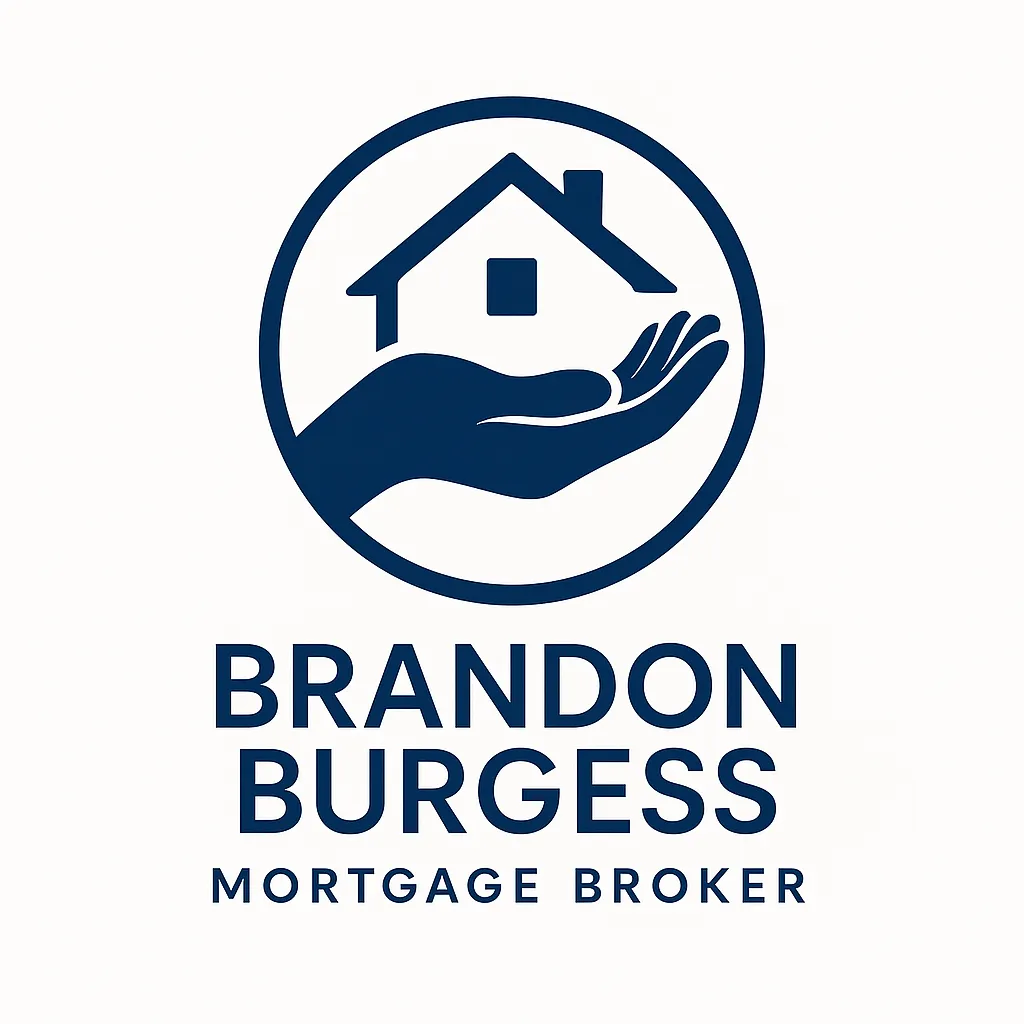Our Latest Articles

Unlocking Real Estate Investment: Understanding DSCR Loans
Real estate investing can be incredibly rewarding. It offers opportunities to generate passive income, build equity, and achieve long-term financial stability. However, traditional lending can sometimes pose challenges for investors, especially those who are self-employed or have complicated financial profiles. This is where DSCR loans become an invaluable tool.
What Exactly Is a DSCR Loan?
DSCR stands for Debt Service Coverage Ratio.
In simple terms, it’s a loan that qualifies you based on your property’s rental income potential rather than your personal income.
Unlike conventional mortgages that scrutinize your income, employment history, and tax returns, DSCR loans rely primarily on the property’s income-generating ability to service the debt.
To determine eligibility, lenders use a straightforward formula:
DSCR = Net Operating Income/Total Debt Service
A DSCR above 1.0 indicates the property generates enough income to cover the mortgage payment.
Most lenders prefer a DSCR of at least 1.2, providing some buffer to cover loan payments comfortably.
Who Can Benefit Most from DSCR Loans?
DSCR loans offer advantages to several types of real estate investors:
Self-employed Investors: If you’re self-employed, traditional banks often require extensive documentation and can scrutinize your fluctuating income. DSCR loans bypass this, focusing instead on property cash flow.
Airbnb and Rental Property Buyers: Investors purchasing short-term rentals or Airbnb properties particularly benefit, as these properties often generate robust cash flow that traditional income documents can’t fully capture.
Investors Scaling Their Real Estate Portfolio: Seasoned investors looking to expand their portfolios rapidly appreciate the streamlined process of DSCR loans, allowing faster growth without complicated paperwork and income verifications.
Advantages of Using DSCR Loans
Simplified Approval Process: Since these loans rely on property income rather than personal income, approval can be significantly faster. Investors appreciate the efficiency, especially in competitive real estate markets.
No Personal Income Documents Required: This is ideal for investors with complex tax situations or who prefer not to disclose extensive personal financial information. This privacy can be a significant advantage.
Flexible Terms and Options: Many DSCR lenders offer interest-only payments, adjustable-rate mortgages, and varying loan terms. This flexibility helps investors tailor financing to specific investment strategies.
Understanding the DSCR Calculation
To illustrate, imagine you’re considering a rental property:
Monthly rental income: $2,500
Monthly expenses (maintenance, taxes, insurance): $500
Monthly mortgage payment: $1,600
Your Net Operating Income (NOI) is the rental income minus expenses ($2,500 - $500 = $2,000). Then, your DSCR would be calculated as:
$2,000/$1,600 = 1.25
With a DSCR of 1.25, your property generates more than enough income to cover the mortgage payment, satisfying lender requirements comfortably.
Potential Drawbacks to Consider
While DSCR loans are highly advantageous, investors should also consider potential downsides:
Higher Interest Rates: Because DSCR loans often come from alternative lenders or specialty programs, interest rates might be slightly higher compared to conventional loans.
Larger Down Payments: Most DSCR lenders typically require 20–30% down, though this can vary based on the property and your financial profile.
Property-Focused Risk: Since your property’s income potential dictates loan approval, market fluctuations or unexpected vacancies could impact your ability to service the debt comfortably.
Making the Most of DSCR Loans: Best Practices
To maximize the benefits of DSCR loans, investors should:
Research Lenders: Not all DSCR lenders are equal. Rates, terms, fees, and eligibility requirements vary significantly, so shop around for the best fit.
Maintain Solid Cash Reserves: Always ensure you have adequate reserves. This financial cushion can protect you during unforeseen vacancies or expenses.
Thoroughly Evaluate the Property: Strongly consider market conditions, local rental rates, and the property’s condition. Your property’s performance directly impacts your loan approval and financial stability.
DSCR Loans and the Texas Market
In Texas, particularly thriving markets like Houston, Dallas-Fort Worth, Austin, and Sugar Land, DSCR loans are gaining popularity among savvy investors.
Texas’s robust real estate appreciation, coupled with high rental demand, creates an ideal environment for investors leveraging DSCR loans.
Additionally, Texas’s landlord-friendly laws and diverse economy offer an additional layer of security and profitability for real estate investors.
Is a DSCR Loan Right for You?
Ask yourself these questions:
Do you prefer less personal documentation?
Are you focused primarily on your investment property’s income potential?
Do you want flexibility and efficiency in the loan approval process?
If your answers are “yes,” exploring DSCR loans could significantly accelerate your real estate investment strategy.
Getting Started with DSCR Loans
As a trusted mortgage broker serving Texas, Brandon Burgess (NMLS #371950) specializes in DSCR loans.
I can guide you through the process, evaluate potential properties, and find financing tailored to your needs.
Navigating DSCR financing requires strategic planning and expertise.
With the right guidance, it becomes straightforward, efficient, and profitable.
Ready to Explore Your Options?
If you’re considering adding DSCR loans to your investment toolkit, let’s run the numbers together.
Reach out today for a personalized consultation and discover how DSCR loans can unlock your real estate investment goals.
Real estate investing doesn’t need to be complicated, especially when you have the right financing solutions.
With DSCR loans, your property’s income potential is the key to unlocking new opportunities.
Gallery


